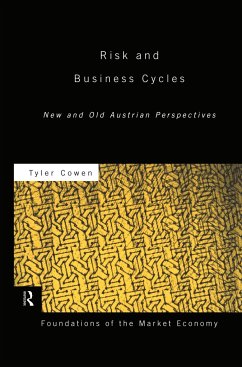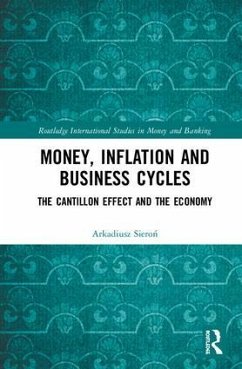
Business Cycles in Economic Thought
A history
Herausgeber: Alcouffe, Alain; Schefold, Bertram; Poettinger, Monika
Versandkostenfrei!
Versandfertig in 1-2 Wochen
168,99 €
inkl. MwSt.
Weitere Ausgaben:

PAYBACK Punkte
84 °P sammeln!
This volume underlines how, over the time span of two centuries, economic thought interacted with cycles in a continuous renewal of theories and rethinking of policies, whilst economic actions embedded themselves into past economic thought. It argues that studying crises and periods of growth in different European countries will help to understand how different national, political and cultural traditions influenced the complex interaction of economic cycles and economic theorizing. This is alongside a comprehensive outlook on the most relevant advances of economic theory in France, Germany and...
This volume underlines how, over the time span of two centuries, economic thought interacted with cycles in a continuous renewal of theories and rethinking of policies, whilst economic actions embedded themselves into past economic thought. It argues that studying crises and periods of growth in different European countries will help to understand how different national, political and cultural traditions influenced the complex interaction of economic cycles and economic theorizing. This is alongside a comprehensive outlook on the most relevant advances of economic theory in France, Germany and Italy, as well as coverage of non-European countries, such as the United States.













